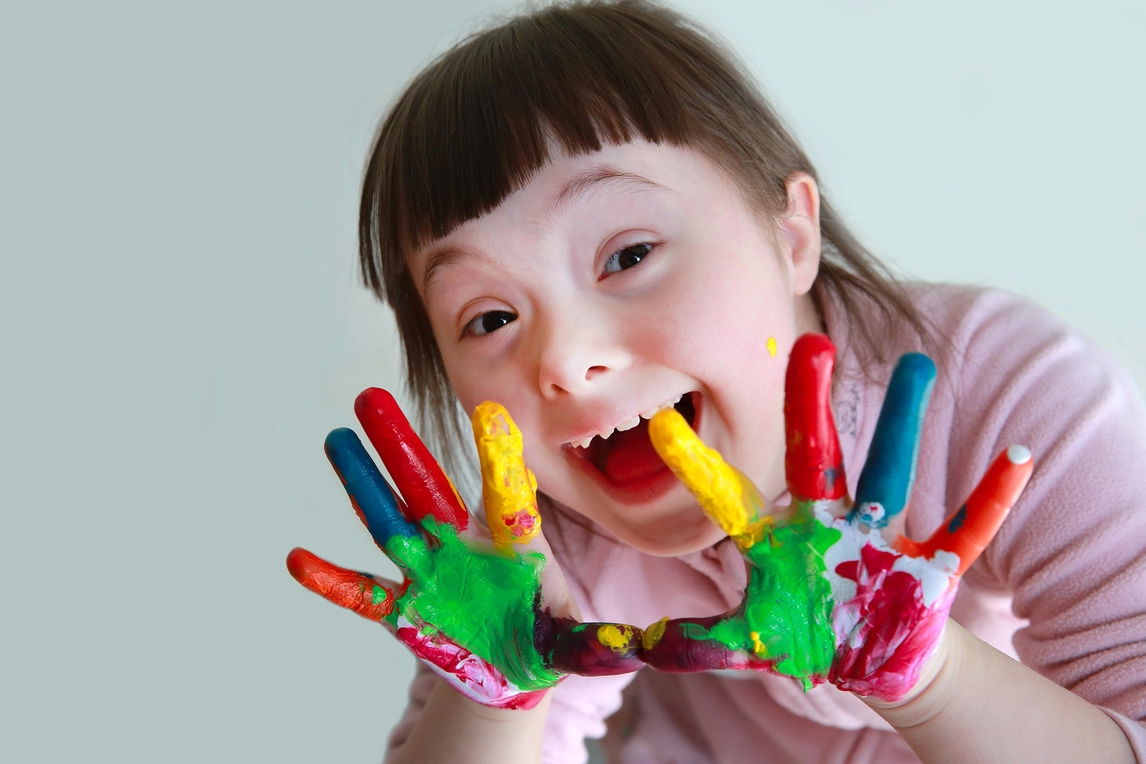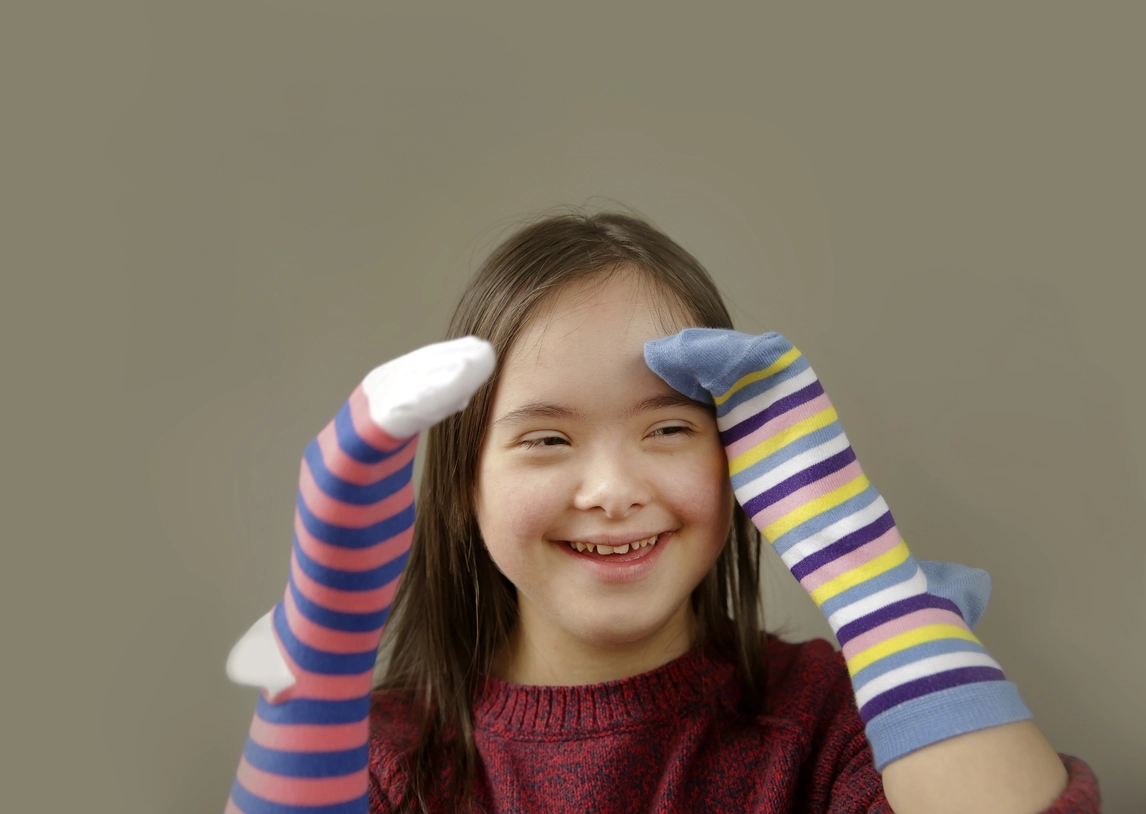Down Syndrome
Understanding, Support & Care
What is Down Syndrome?
Down syndrome is a genetic condition occurring when a person has an extra copy of chromosome 21, resulting in 47 chromosomes instead of 46. This extra genetic material causes various physical and intellectual differences.
Characterized by distinctive facial features, decreased muscle tone, and developmental delays, it also increases risk for certain health problems. However, with the right support, individuals lead fulfilling lives.

Types of Down Syndrome
Classified into three types based on genetic mechanisms, though physical impacts are similar.
Trisomy 21
Most common (95%). Results from an extra copy of chromosome 21 in all cells.
Mosaic Down Syndrome
Rare (4%). A mixture of cells, some with typical chromosomes and some with an extra chromosome 21.
Translocation
Rarest (1%). Part of chromosome 21 becomes attached to another chromosome.

Causes & Prevalence
Caused by an error in cell division. The prevalence in India is estimated around 1 in 800 to 1 in 1000 live births.
Risk Factors
Advanced maternal age, smoking during pregnancy, and exposure to ionizing radiation may increase risk.
Common Symptoms
Treatment & Management
A multidisciplinary approach helps individuals reach their full potential.
Occupational Therapy
Develops skills for independence: fine motor coordination, self-care (dressing, feeding), and vocational skills for adults.
Speech Therapy
Focuses on early communication (pointing, eye contact), clear speech, language complexity, and social interaction skills.
Clinical Psychology
Manages emotional/behavioral challenges. Strategies for anxiety, positive self-image, and addressing aggression.
Physiotherapy
Improves physical ability (gross motor, balance, strength). Helps with milestones like walking and overall fitness.
The BrainTree Promise
"We are committed to providing the highest quality care to help individuals with Down syndrome reach their full potential and live happy, healthy lives."
Book an Appointment